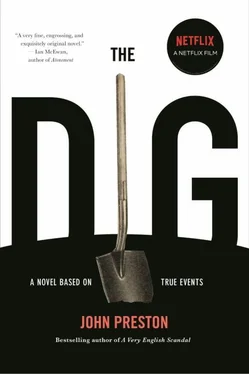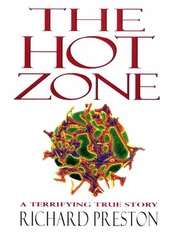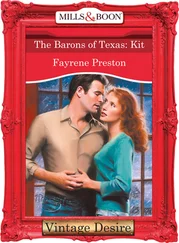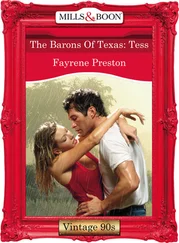Still it has continued to rain, this incessant, lowering, halfhearted drizzle. But instead of clearing the air, the rain merely seems to make it even heavier. My fingers have swollen, the joints in particular. If I was to take off my rings, I doubt I would be able to put them on again.
Robert too has been affected, by both the weather and the general atmosphere. He seems listless, devoid of enthusiasm. At luncheon today he scarcely said a word, while his appetite, I noticed, was almost as poor as mine. Afterwards he said he was going outside to see Mr. Brown and the men. However, the tone of his voice suggested this would be as much of a chore as everything else.
In the afternoon, I went to Frank’s study and sat at his desk. Even if it were not for its associations, I think this would be my favorite room in the house; it seems to hold the daylight longer than any of the others. I had been intending to sort through his papers; there are still some bundles that have not been properly collated.
But once there I found I had neither the resolve nor the energy even to make a start. Clouds sat above the estuary, so gray and low it was virtually impossible to tell where the water ended and the sky began. Only a thin pencil line separated them.
On the shelf above Frank’s desk was a pigskin-framed photograph of the two of us on horseback. We were both wearing our riding clothes, both gazing impassively at the camera.
I took the photograph down. It had been taken twelve years ago on a pony-trekking holiday in Iceland. Together, we had ridden across a great plateau in the north of the country, a region referred to in our Baedeker as “The Uninhabited Highlands.” These highlands were renowned for a type of lichen that was reputed to glow in the dark. Both Frank and I had been rather sceptical about this. Our Icelandic guide, however, insisted that it was well worth seeing, even though it meant we would have to spend the night under canvas.
Setting out in the early afternoon, the three of us rode across the plateau — our guide leading the way, followed by Frank. As the more experienced rider of the two of us, I brought up the rear. The plateau was a forbidding place, edged on either side by black basalt cliffs. The tops of these cliffs were covered in snow. When the sun set, we kept going. There was a smell of sulphur from the volcanic pools. The smell disturbed the ponies; they began skittering about and had to be steered into the wind.
Soon Frank and the guide were almost invisible. But still we carried on. On either side of me I could hear the mud plopping in the volcanic pools, a sound at once solemn and ridiculous. All at once my pony stopped. I think I must have pulled on the reins without being aware of it. To begin with, I doubted the evidence of my eyes. Only slowly did I allow myself to acknowledge what I was seeing.
An enormous illuminated blanket, the palest green in color, appeared to have been spread on the ground. On either side, it stretched right to the furthest edges of the plateau, rippling away in impossible, luminous waves. Never before have I experienced such wonder and awe. Yet with it came the strangest feeling of displacement, as if the world had been turned on its head and we were riding our ponies along the bottom of the sea. I tried to hold on to the memory now, hoping that some of the wonder I had felt then might help dispel this gnawing, corrosive sense of emptiness.
The door swung back with a bang. Robert ran in. His shirt was not tucked in properly and his collar was all twisted round.
“There you are, Mama!” he exclaimed.
“Will you please knock before you come in, Robert!” I said. “How many times have I told you not to run? What on earth is the point of my telling you things if you don’t take the slightest notice of what I say?”
Robert stopped immediately.
He looked as if he had been slapped across the face. For several seconds he was unable to say anything. His chest rose and fell with the effort of breathing.
I could still hear my voice, angry and querulous. It continued ringing in my ears as I said, “Was there anything in particular you wished to see me about, Robbie?”
“Yes — yes, there was…” he said.
He paused, apparently unsure whether to go on.
“What is it, then?”
“It’s about Mr. Brown, Mama.”
“What about Mr. Brown?”
“He says he has found something.”
Basil Brown
MAY–JUNE 1939
All week it kept bucketing down. The rain came in over our boots. It seeped under the tarpaulins and leaked through the roof of the shepherd’s hut. The wheelbarrow kept sinking into the ground, right up to the axle. We laid down planks for tracks. The trouble is that the barrow is so heavy when it’s fully laden that it’s near impossible to steer in a straight line. Also the rain makes the planks slippery, of course. At times it felt as if we were hardly going forward at all. Then, at around three o’clock on Thursday, I was down at the bottom of the trench when I heard John Jacobs shout, “Baz!”
“What is it?”
“Can you come here?”
I scrambled up the bank to where John was standing. He was holding a piece of iron. It was about four inches in length, much corroded and roughly the shape of a bolt.
When I asked him to show me where he’d found it, he pointed at a pinky-brown patch in the sand. As soon as I saw it, I asked the men to step away. Then I knelt down with my trowel. I was all set to start scraping when I noticed another patch of pink sand. This one was about six inches away, on the left-hand side. Although not as big or clear as the first, it was still clear enough.
I dug down. An inch or so below the patch of sand was a second piece of metal — even more corroded than before, but the same shape. Just like a bolt. I moved along, not scraping now, only looking. Another six inches away from the second patch of sand there was a third one.
Now what have we got here? I thought.
Before going on, I had another look at John’s piece of iron. Also at the one I’d just found. I had a strong suspicion that I’d seen them before. Or something very like them anyway. But where and when?
I sat down on the ledge and tried to remember. I was damned if I could dredge anything up. I was close to banging my head with my fist when all at once it popped into my mind: Aldeburgh. Yes, that’s it. There’s another one of these at Aldeburgh, I was positive there was, although it must have been a good fifteen years since I saw it.
Brushing myself down, I told John and Will that I’d be gone for a few hours and that it was very important they shouldn’t disturb anything while I was away. Then I put the pieces of iron into my pocket, climbed on my bike and headed north — towards Orford.
As I rode along, the clouds finally began to lift. By the time I reached Rendlesham Forest the mist was already rising off the trees. Coming closer to the sea, the breeze was so strong it nearly took my cap off. Beyond Orford, I carried on along the coast road. On the right-hand side, the land shelved down to the water. I rode through fields of wheat and sedge, until I reached the ferry crossing opposite Slaughden. As luck would have it, a ferry was waiting there, about to depart. I cycled on and then hung about impatiently for several more minutes while some further dawdling took place.
Slowly, the ferry cast off and inched its way across the river. I spent the crossing astride my bike, staring at the opposite bank, willing it to come closer. The moment the ferry touched land, I was off, pedaling into town, past the boathouses and the beach huts. A couple of people called out to me. One of them — I’ve no idea who — shouted, “What’s the hurry?” but I didn’t stop. I just lifted a hand as I rode past.
Читать дальше












